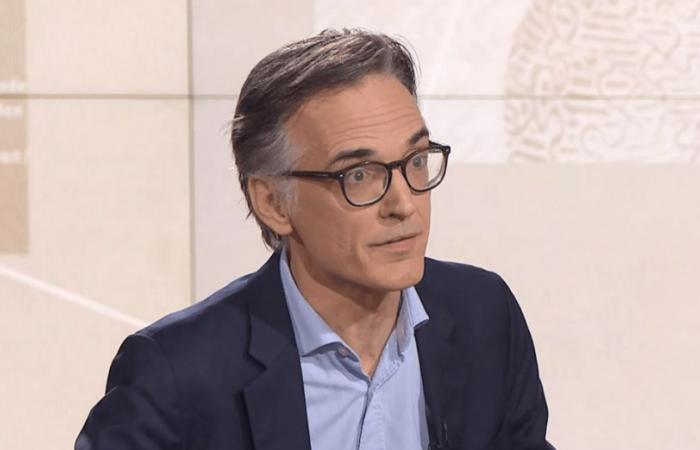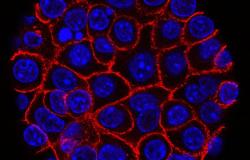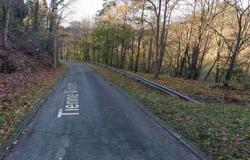A tireless defender of victims of war crimes, Alain Werner tracks down criminals all over the world. Despite political obstacles and the fragility of international justice, this Geneva lawyer specializing in international criminal law remains faithful to his mission: to give a voice to those whom the horrors of History have silenced, as he defends on the microphone of Helvetica.
This content was published on
November 14, 2024 – 11:00
Alain Werner tracks down war criminals all over the world, convinced of the importance of international justice. Even if this justice is often flouted today, this lawyer specializing in international criminal law and crimes against humanity continues to defend it tooth and nail.
He particularly remembers a man who lost his brother in a detention center in Phnom Penh during the Cambodian Khmer Rouge regime. “He had nightmares for 30 years,” says Alain Werner. But when he was able to witness the sentencing of the former head of this camp Kaing Guek Eav, alias Douch, “his life changed”.
And the specialist in international criminal law continues: “All these experiences inspire us and give us strength. The courage of these people and their resilience nourish us and push us to be their spokespersons.” And this, even if the convictions often take place several decades after the facts and the victims are often no longer direct victims, but fathers, mothers, brothers or sisters.
The election of Trump: an attack on the image of justice
The election of Donald Trump to the White House on November 6 disappoints him a little, because of what he perceives as an attack on the image of justice. “For a lawyer who believes in justice, the fact of having a President of the United States under civil conviction and a criminal conviction does not give a good image of justice,” confides the lawyer Geneva.
In addition to participating in the Khmer Rouge Douch trial in Cambodia, Alain Werner has represented victims in some of the most notable war crimes trials in recent years, including those of former heads of state Charles Taylor in Liberia and Hissène Habré in Chad. In 2012 he founded Civitas MaximaExternal linkan NGO whose mission is to document war crimes and crimes against humanity, and to provide legal aid to victims in order to support them in their quest for justice.
Limits of the International Criminal Court
However, his commitment often confronts him with the limits of the International Criminal Court (ICC), an institution that only 125 countries around the world recognize. “And that’s the paradox,” underlines the Genevan. “The truth is that neither China, nor Russia, nor India, nor even the United States, have ratified the Rome Statute of the International Criminal Court. The majority of the world therefore escapes its jurisdiction.”
The United States, and particularly under Republican administrations, has never adhered to the game of international justice. And they never hid it, he continues, recalling that former ICC prosecutor Fatou Bensouda was even banned from entering the United States in 2019, in connection with an investigation into abuses. of American soldiers in Afghanistan.
This situation could also be repeated with the current ICC prosecutor Karim Khan, who last May issued international arrest warrants against Benjamin Netanyahu and several Hamas leaders. A possible indictment of the Israeli Prime Minister which the United States does not support, with President Joe Biden considering in particular that there could be no equivalence between Israel and Hamas.
Symbolic value
Despite these oppositions, Alain Werner persists in believing in the symbolic value of international justice, although he recognizes that the path is strewn with obstacles: “The ICC is a complex structure, with numerous safeguards. Arrest warrants are strong symbols, but their application remains dependent on the collaboration of States.” The lawyer recalls, for example, that Vladimir Putin, the subject of an international arrest warrant, recently went to Mongolia, a country which nevertheless recognizes the ICC.
“The obstacles have been there from the start. The history of international justice has been nothing but a series of obstacles. But we must instead see the positive: despite these great obstacles, we are creating space for justice,” he concludes.
Learn more
Following
Previous
Plus
The new impetus for universal jurisdiction explained in six points
This content was published on
August 28. 2024
Universal jurisdiction means that the most serious crimes can be prosecuted anywhere in the world. Born after the Second World War, this principle is only emerging today.
read more The new impetus for universal jurisdiction explained in six points






